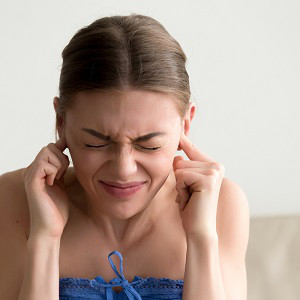
Tinnitus is basically understood to be ear noises that happen without acoustic stimulus and are perceived as a disturbing sound sensation.
The ear noise as an acoustic perception in itself is not a disease, but a symptom. Comparable to pain, tinnitus is often a warning signal and indicates a malfunction, overload or disease in the ear.
There are about 1.5 million cases of tinnitus in Germany alone, and about 8 to 13 percent of the people affected suffer significantly from it.
Patients complain of whistling, ringing, roaring, hissing, buzzing and much more, either intermittently or permanently. At the same time, hearing loss may accompany the condition.
The causes of tinnitus can be manifold. Heavy metals, medication side effects, nutrient deficiencies, consequences of Meniere's disease or otitis (inflammation of the middle ear) and many more are possible.
As documented in more detail below, factors such as stress, anxiety, drastic life events sometimes also play a role that cannot be disregarded.
In practice, it is difficult to precisely assess the cause of tinnitus. In orthodox medicine, a distinction is made between subjective and objective ear noises.
Subjective noises
These noises are only perceived by the patient himself. They usually occur as accompanying symptoms of the following diseases:
- Otitis media
- Otosclerosis (disease of the bone, (disease of the bone surrounding the inner ear)
- Meniere's disease (disease of the inner ear)
- Anaemia
- Blood pressure anomaly
- Pathological changes in the cervical spine
- Noise pollution
- Hearing loss
- Noise trauma
- Viral diseases
- Circulatory disorders of the head vessels
- Heart valve disease
- Hypo- or hyperthyroidism
- Diabetes
- Intoxications (streptomycin, Arsenic)
- Mental overload
Objective hearing noises
These can be heard not only by the patient but also by the examiner.
They are often caused by vascular anomalies such as malformations, aneurysms, stenoses or by increased blood flow to the ear.
Objective hearing noises can also be caused by movement of the temporomandibular joint (clicking!) or by an open eustachian tube (ear trumpet).
Stress and tinnitus
Physical or mental stress does not directly cause tinnitus. However, research shows that 26 percent of people with chronic tinnitus report that they either have or have had stress. According to this, the ear noise can also be an "internal seismograph" of the acute stress level.
Triggering factors could be:
- Depression
- Anxiety
- Impactful event
- Severe sleep disturbance
According to research, patients under stress tend to perceive sounds much louder. For this reason, relaxation can already help to alleviate the symptoms.
Chronic tinnitus and the soul
A study by the Central Institute for Mental Health in Mannheim showed that there is an interconnection between the psyche and hearing in chronic tinnitus. Those affected also perceive emotional impressions with those areas of the brain that are networked with the auditory pathway, according to the motto: hear feelings.
